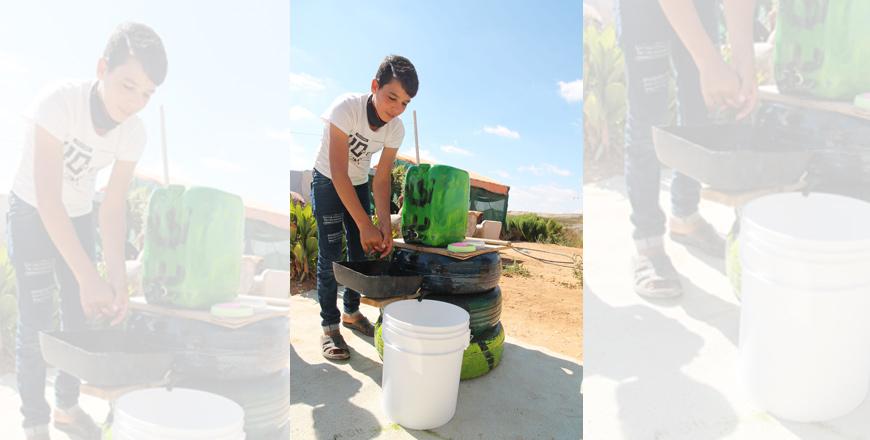You are here
UN official calls for ‘holistic approach’ to water strategies
By Hana Namrouqa - Mar 16,2014 - Last updated at Mar 16,2014
AMMAN — Jordan is struggling with severe water stress and current emergency measures to address the water scarcity problem are neither sufficient nor sustainable, a UN official said on Sunday.
Catarina de Albuquerque, UN special rapporteur on the human right to water and sanitation, urged the government to take a holistic approach that links emergency needs for water and sanitation with a long-term, comprehensive development strategy.
She made the remarks at a press conference to announce her impressions and recommendations about water and sanitation services in the country following a six-day assessment visit.
“The government should also use the opportunity presented by the current drafting of the new water law, and of the Water and Sanitation Strategy to clearly accord priority to water for human consumption over other uses, to explicitly recognise the human rights to water and sanitation, and to use its normative content to guide actions in the sector,” de Albuquerque said.
During her visit, the UN official assessed the way in which Jordan is implementing the human right to water and sanitation for all.
She met with HRH Prince Hassan, government officials and representatives of the National Centre for Human Rights, civil society organisations and the international community, and also visited several suburbs in Amman, the Jordan Valley, Mafraq Governorate and the Zaatari Refugee Camp.
“The situation of refugees I witnessed — both inside and outside refugee camps — was striking. This cannot be addressed by the government of Jordan or the international community alone,” de Albuquerque pointed out.
Both should work together and shift from an emergency reaction to a proper medium- and long-term response to the refugee inflow, the UN special rapporteur said, underscoring that the needs are not going to reduce in the near future.
“I call on the donor community to increase financial support to such efforts,” de Albuquerque said.
She also urged for strengthened support to the northern governorates, which host more than 70 per cent of the Syrian refugees, and ensuring sustainable provision of water and sanitation to refugees, as well as to the wider Jordanian population.
“This support [to the northern governorates] is crucial to prevent a possible public health crisis due to lack of water and treatment of wastewater and also to make sure that [the] local population does not have to bear an unfair burden when it comes to their access to water and sanitation,” she underscored.
De Albuquerque also highlighted the issue of sewage collection in areas that are not yet linked to the sewage network or the water system.
“The current system creates injustices… I met a 64-year-old man, Sulaiman Ali, who has been living with his wife in his own house in a suburb of Amman for over 20 years. His house is still not connected to the water network despite his repeated applications to the water authority. He is forced to devote almost 50 per cent of his monthly income to paying [for] water tankers and sludge collection,” she noted.
The UN special rapporteur also called on the government to draft a new tariff system that “requires better-off households to pay higher tariffs, while poorer households would be guaranteed a lower, subsidised price.”
De Albuquerque said that she will present a full report on her visit to Jordan to the UN Human Rights Council in September, noting that it will include a detailed analysis, as well as specific recommendations to the government and other key actors.
Related Articles
UN Special Rapporteur on Human Rights and Access to Safe Drinking Water and Sanitation Catarina de Albuquerque will visit the Kingdom between March 11–16 to evaluate the government procedures regarding the priorities and administration of water resources.
AMMAN — Dibeen Society for Environment Development on Wednesday prepared a specialised report on water rights to be discussed at the Univers
AMMAN — Water scarcity impacts every aspect of life in Jordan and has a direct and detrimental impact on children’s health, development and















